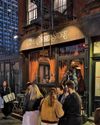Is Football Over? Just a few years ago, the NFL was an unassailable empire. Now, suddenly, it’s the fall of Rome.

A FEW WEEKENDS AGO, at a seersucker-in-November southern horse-racing event I attended with some lovely and friendly people who will nevertheless be the first ones taken out when the revolution comes, a family friend, an older white man, asked me what I, the one sportswriter he knew, thought of the kneeling NFL players. I told him that while I stand for the anthem myself, I supported the players’ right to express themselves politically and encouraged him to worry less about the kneeling and more about what the players were trying to say. He snorted and said he was done with the NFL until “they stand their ass up.” We then drank some bourbon and found something else to talk about.
Later on, I spoke with another family friend, one with long hair and a big bushy beard and an anarchic spirit (he whispered “Fuck all these Trump people” to me with a winking smile). I had just returned from the World Series and told him in February I’d be heading to the Super Bowl. “I don’t know how you can watch that,” he said. “Just jingoistic military bullshit.” He asked me if I would let my sons play, or if I worried it would “smash their brains.” We then drank some more bourbon and found something else to talk about.
There was a time, not long ago, when the NFL was the most unifying public institution we had. No matter your political or demographic persuasion, the one thing you could find to talk about with someone was football. Richard Nixon and Hunter S. Thompson bonded over football, for crying out loud. Over the decades, the Super Bowl grew into the ultimate American spectacle, the last event that everyone in the country watched together, whether you cared about the game, the commercials, the point spread, or just Left Shark. You couldn’t avoid the NFL if you wanted to. Most didn’t.
Diese Geschichte stammt aus der November 27–December 10, 2017-Ausgabe von New York magazine.
Starten Sie Ihre 7-tägige kostenlose Testversion von Magzter GOLD, um auf Tausende kuratierte Premium-Storys sowie über 8.000 Zeitschriften und Zeitungen zuzugreifen.
Bereits Abonnent ? Anmelden
Diese Geschichte stammt aus der November 27–December 10, 2017-Ausgabe von New York magazine.
Starten Sie Ihre 7-tägige kostenlose Testversion von Magzter GOLD, um auf Tausende kuratierte Premium-Storys sowie über 8.000 Zeitschriften und Zeitungen zuzugreifen.
Bereits Abonnent? Anmelden

Trapped in Time
A woman relives the same day in a stunning Danish novel.

Polyphonic City
A SOFT, SHIMMERING beauty permeates the images of Mumbai that open Payal Kapadia's All We Imagine As Light. For all the nighttime bustle on display-the heave of people, the constant activity and chaos-Kapadia shoots with a flair for the illusory.

Lear at the Fountain of Youth
Kenneth Branagh's production is nipped, tucked, and facile.

A Belfast Lad Goes Home
After playing some iconic Americans, Anthony Boyle is a beloved IRA commander in a riveting new series about the Troubles.

The Pluck of the Irish
Artists from the Indiana-size island continue to dominate popular culture. Online, they've gained a rep as the \"good Europeans.\"

Houston's on Houston
The Corner Store is like an upscale chain for downtown scene-chasers.

A Brownstone That's Pink Inside
Artist Vivian Reiss's Murray Hill house of whimsy.

These Jeans Made Me Gay
The Citizens of Humanity Horseshoe pants complete my queer style.

Manic, STONED, Throttle, No Brakes
Less than six months after her Gagosian sölu show, the artist JAMIAN JULIANO-VILLAND lost her gallery and all her money and was preparing for an exhibition with two the biggest living American artists.

WHO EVER THOUGHT THAT BRIGHT PINK MEAT THAT LASTS FOR WEEKS WAS A GOOD IDEA?
Deli Meat Is Rotten